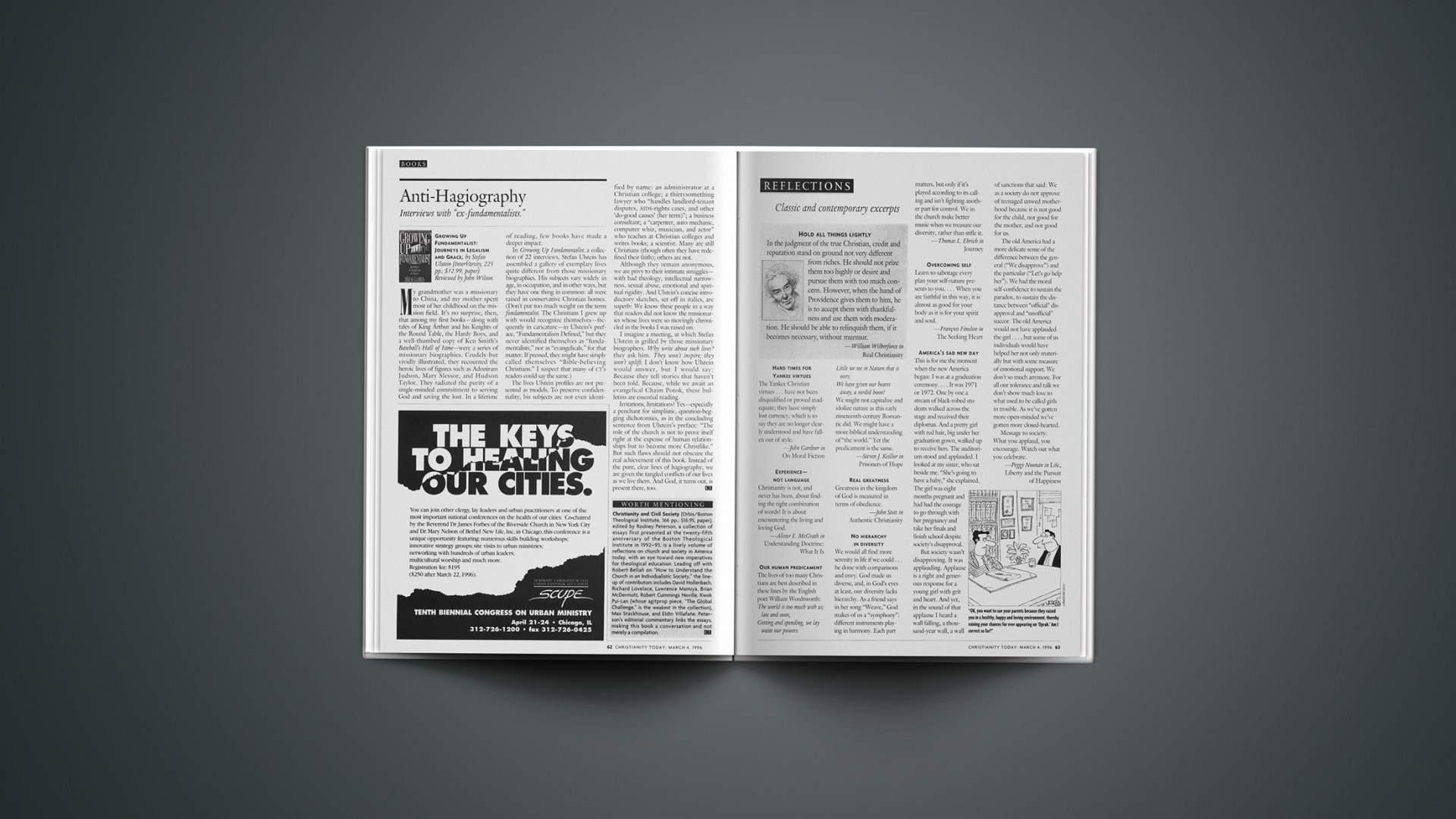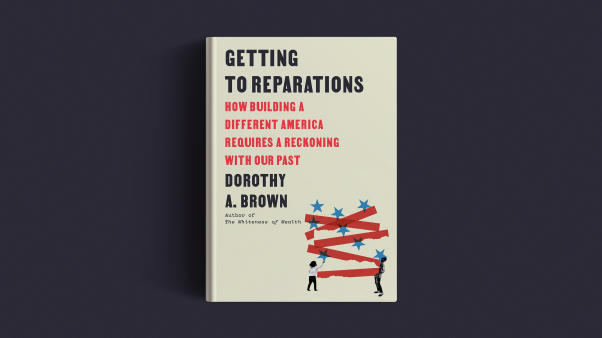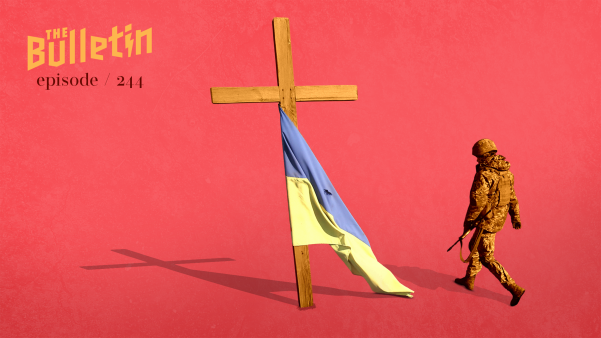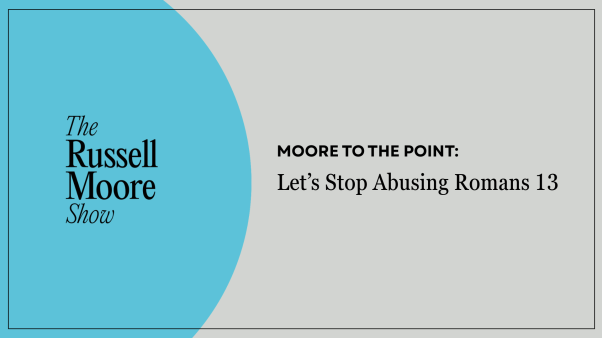“Growing Up Fundamentalist: Journeys in Legalism and Grace,” by Stefan Ulstein (InterVarsity, 225 pp.; $12.99, paper). Reviewed by John Wilson.
My grandmother was a missionary to China, and my mother spent most of her childhood on the mission field. It’s no surprise, then, that among my first books–along with tales of King Arthur and his Knights of the Round Table, the Hardy Boys, and a well-thumbed copy of Ken Smith’s “Baseball’s Hall of Fame”–were a series of missionary biographies. Crudely but vividly illustrated, they recounted the heroic lives of figures such as Adoniram Judson, Mary Slessor, and Hudson Taylor. They radiated the purity of a single-minded commitment to serving God and saving the lost. In a lifetime of reading, few books have made a deeper impact.
In “Growing Up Fundamentalist,” a collection of 22 interviews, Stefan Ulstein has assembled a gallery of exemplary lives quite different from those missionary biographies. His subjects vary widely in age, in occupation, and in other ways, but they have one thing in common: all were raised in conservative Christian homes. (Don’t put too much weight on the term fundamentalist. The Christians I grew up with would recognize themselves–frequently in caricature–in Ulstein’s preface, “Fundamentalism Defined,” but they never identified themselves as “fundamentalists,” nor as “evangelicals,” for that matter. If pressed, they might have simply called themselves “Bible-believing Christians.” I suspect that many of CT’s readers could say the same.)
The lives Ulstein profiles are not presented as models. To preserve confidentiality, his subjects are not even identified by name: an administrator at a Christian college; a thirtysomething lawyer who “handles landlord-tenant disputes, AIDS-rights cases, and other ‘do-good causes’ (her term)”; a business consultant; a “carpenter, auto mechanic, computer whiz, musician, and actor” who teaches at Christian colleges and writes books; a scientist. Many are still Christians (though often they have redefined their faith); others are not.
Although they remain anonymous, we are privy to their intimate struggles–with bad theology, intellectual narrowness, sexual abuse, emotional and spiritual rigidity. And Ulstein’s concise introductory sketches, set off in italics, are superb: We know these people in a way that readers did not know the missionaries whose lives were so movingly chronicled in the books I was raised on.
I imagine a meeting, at which Stefan Ulstein is grilled by those missionary biographers. Why write about such lives? they ask him. They won’t inspire; they won’t uplift. I don’t know how Ulstein would answer, but I would say: Because they tell stories that haven’t been told. Because, while we await an evangelical Chaim Potok, these bulletins are essential reading.
Irritations, limitations? Yes–especially a penchant for simplistic, question-begging dichotomies, as in the concluding sentence from Ulstein’s preface: “The role of the church is not to prove itself right at the expense of human relationships but to become more Christlike.” But such flaws should not obscure the real achievement of this book. Instead of the pure, clear lines of hagiography, we are given the tangled conflicts of our lives as we live them. And God, it turns out, is present there, too.
Copyright © 1996 Christianity Today. Click for reprint information.










